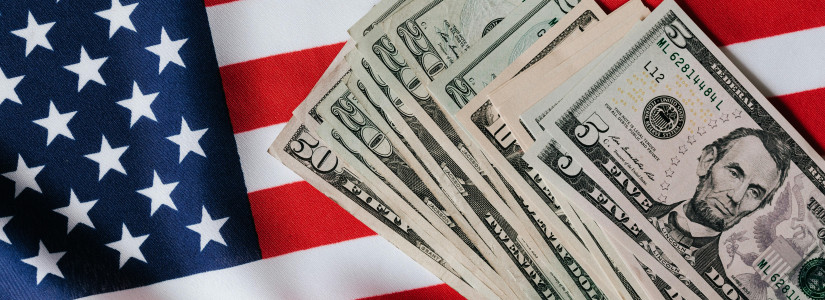Inflation Is Easing: Here's How You Can Save More Money and Maximize Government Benefits

Inflation in the U.S. has been a major concern for the past few years, affecting everything from grocery bills to gas prices. But the good news?
According to experts, inflation has largely returned to normal levels. Recent U.S. Bureau of Labor Statistics data shows that inflation is at its lowest point in over three years, nearing the Federal Reserve's target rate of 2%. While prices are still higher than before the pandemic, the rapid rise in costs has slowed down.
So, how did this happen, and what does it mean for everyday Americans? Let’s break it down—and highlight some government benefits you can use to help make the most of these improvements.
How Inflation Came Back to Normal
1. Supply Chain Recovery
During the pandemic, global supply chains were severely disrupted.
Factories shut down, workers stayed home, and shipments piled up at ports. This caused a shortage of goods, driving up prices.
But as lockdowns eased, factories reopened, and shipping backlogs cleared up, bringing relief to product costs.
Example: Car prices, which skyrocketed due to semiconductor shortages, have stabilized as production resumed.
2. Interest Rate Hikes
To combat inflation, the Federal Reserve raised interest rates sharply, making borrowing more expensive.
This helped cool off excessive demand in the economy, especially for big purchases like cars and homes.
Higher interest rates slowed down consumer spending and gave the supply chain time to catch up, which helped ease inflationary pressure.
Note: The Fed recently cut interest rates slightly, signaling that they believe the fight against inflation is nearly over.
Government Benefits to Help You Cope with Inflation
While inflation has eased, prices are still higher than pre-pandemic levels. Fortunately, there are several government programs and benefits designed to help Americans manage the cost of living.
Here’s how you can take action:
1. SNAP (Supplemental Nutrition Assistance Program)
If you're struggling with grocery bills, SNAP provides financial assistance to help you buy food.
The program has expanded during the pandemic, and many states have increased their monthly benefit amounts.
How to apply: Visit Benefits.gov to see if you're eligible and find your local application portal.
2. LIHEAP (Low Income Home Energy Assistance Program)
With energy prices still high, LIHEAP can help low-income families pay their utility bills.
This program offers financial assistance for heating and cooling costs.
How to apply: Find out if you qualify and apply through your state’s LIHEAP office. Start at LIHEAP.gov.
3. Housing Assistance
If rent prices are still stretching your budget, look into Section 8 vouchers or other housing programs that provide affordable housing options.
These programs have been expanded due to the ongoing financial challenges.
How to apply: Check out HUD.gov to explore available options in your area.
4. Child Tax Credit
The expanded Child Tax Credit has been a lifeline for families during the pandemic, providing additional income to help cover the cost of raising children.
How to claim: If you haven't yet filed your taxes, make sure you claim the credit. Learn more at IRS.gov.
Take Action and Stay Informed
While inflation may no longer be rising as quickly, it's still important to stay on top of your finances and take advantage of the resources available to you.
Government programs are designed to ease the burden, and simple actions like applying for assistance can make a big difference.
For more tips and assistance, visit USA.gov, a helpful resource that connects Americans to a variety of government benefits and services.
By understanding how inflation has stabilized and taking advantage of available resources, you can navigate these economic times with confidence.
Previous article: Where Prices Are Dropping: Groceries, Used Cars, and More as Inflation Slows
-
At InflationRelief.net, we're committed to helping you navigate life’s financial challenges.
From breaking down health myths to optimizing your retirement savings, we offer fresh, practical content every day.
Keep exploring for tips and insights to help you live your best life!
Related Articles
Stay ahead of the curve











